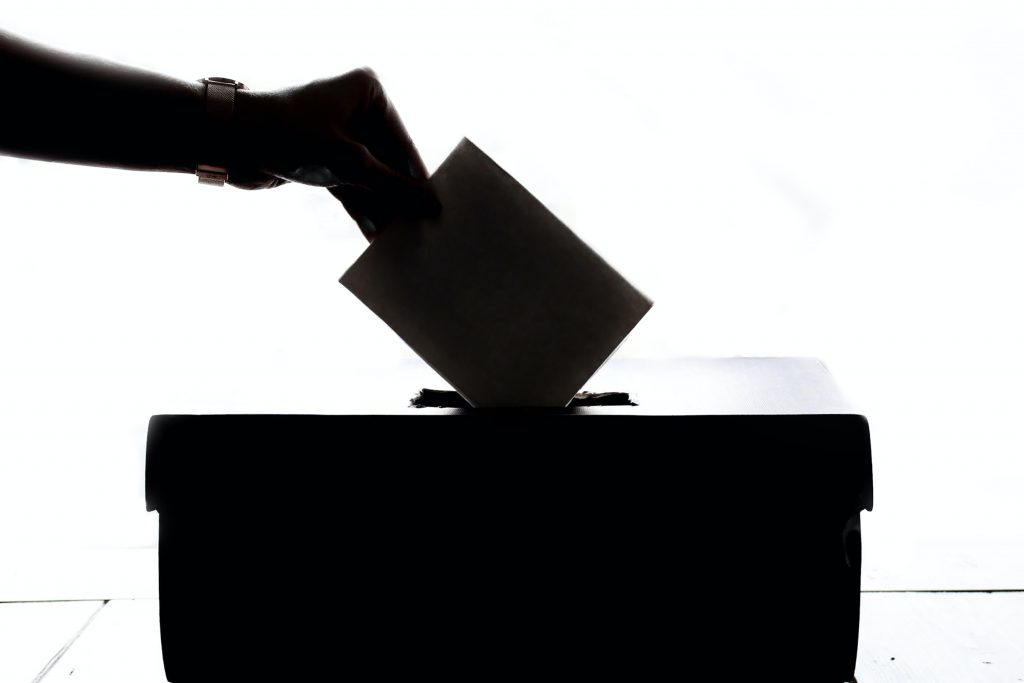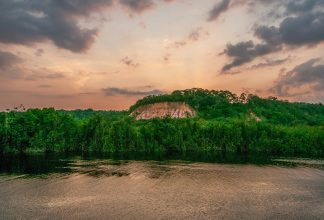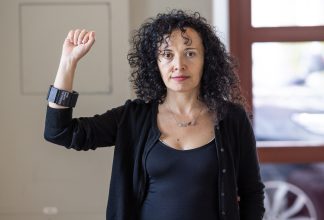Nicaragua and Honduras’ Elections are not Democratic

A version of this article was originally published in Global Bar Magazine on 25 October 2021.
Nicaragua and Honduras will hold elections on 7 November and 28 November respectively, but it is already clear that they will be far from democratic. By systematically stifling dissent and making it impossible for independent observers to monitor the elections, the governments of both countries have done everything they can to ensure that they stay in power. In order to address the anti-democratic methods used by both governments, Civil Rights Defenders notes, the European Union’s Association Agreement with Central America could prove useful.
In Nicaragua, the judicial system has become a tool for criminalizing social protest, evident in the more than 150 political prisoners, including human rights defenders, journalists, and opponents, who were accused and tried without due process. Today, they face abuse and appalling conditions.
As the election on 7 November are approaching, President Daniel Ortega and the General Assembly adopted new laws that were used to harass the opposition. These laws became the mechanism for falsely accusing opponents and imprisoning them.
Despite officially being part of the political opposition, the parties that are running against Ortega have collaborated with the ruling party. The U.S. State Department considers them as accomplices of the government. They are organisations labelled by the U.S. State Department as accomplices of the government. They do not hold much political power; in the 2016 elections, only three of those parties got more than 4% of the votes.
In Honduras, President Juan Orlando Hernández dismissed four of the five magistrates (high-ranking officers with judicial power) who made up the Constitutional Chamber. The only remaining magistrate was eventually appointed attorney general. The renewed Constitutional Chamber later ruled in favor of presidential re-election, allowing Hernández’ re-election.
On 7 October, the National Congress, led by the National Party, approved several reforms to the Criminal Procedure Code and the Penalty Code. Among them is imprisonment of up to 10 years for people who evoke the right to protest.
According to recent surveys from CESPAD, the opposition candidate Xiomara Castro in Honduras is leading vote intention. The government party responded with violence towards CESPAD. They also created a defamation campaign against Castro, linking her to communism.
In Nicaragua, electoral observation is the exception, not the rule.
In May, the National Assembly approved reforms to the electoral law that annulled electoral observation and left the control of the elections in the hands of the ruling party. The directors of the Supreme Electoral Council, Brenda Rocha and Cairo Amador ruled out the participation of international missions, arguing that the elections correspond only to Nicaraguans and that it is a matter of avoiding foreign interference.
For their part, local electoral observation organizations in Nicaragua, such as Ética y Transparencia and the Instituto para el Desarrollo y la Democracia, were forced to close down. Ética y Trnaparencia was accused of espionage while the Instituto para el Desarrollo y la Democracia had its legal status revoked and its offices raided by State agents.
The boycott of the last elections is happening again in the November elections
According to an International Crisis Group report, there were multiple irregularities in the Nicaraguan elections of 2008, 2011, and 2016; interfering with the counting of votes and denying access to independent observers. An observer of the 2011 and 2012 elections reported that FSLN representatives consistently violated procedures at polling stations because they did not want opposition observers to count ballot boxes, and they wanted to let people vote who did not appear on the electoral roll.
In July, authorities initiated a citizen verification process. They identified the following situations: elimination and changes in polling stations, ignorance of the proper mechanism of citizen verification, parallel counting and, party control by the FSLN.
Honduras’ past elections were full of irregularities. After the closure of the voting centers and with 57% counted, Salvador Nasralla, the opposition candidate, emerged as the possible winner with 45% of the votes. In comparison, Juan Orlando Hernández had 40.21%. However, after some technical failures that stopped the transmission of the count, Hernández was proclaimed the winner. The OAS described the Honduran electoral process as irregular and deficient, with reports of deliberate intrusions into the computer system.
Who finances the campaigns?
So far, there is no certainty about the current financing of the campaigns. A review of past campaigns sheds light on the provenance of themoney to pro-government candidacies.
Daniel Ortega financed his 2007 campaign with money from drug trafficking, according to leaked documents from the U.S. Embassy in Managua. The embassy also said that Nicaraguan officials received money on their trips to Caracas. According to multiple reports, Ortega used Venezuelan oil money to finance the Citizen Power Councils and FSLN campaigns.
In Honduras, drug trafficking has regularly financed campaigns. Regarding Hernández, drug traffickers said that they funded the campaign for his re-election with more than half a million dollars at his request. In return, he promised them protection of both their shipments and extradition to the United States.
The candidate of the ruling party, Nasry Asfura, has carried out multiple acts of corruption through the State. He has made millionaire contracts where he has been both the contractor and hirer and has diverted money from the public administration.
In addition to Asfura, different candidates for the presidency have links to corruption or drug trafficking. According to statements by drug trafficker Geovanny Fuentes and Xiomara Castro’s husband, Manuel Zelaya, received 500,000 USD from the Cachiros cartel to appoint a close friend as security minister.
Democracy in Nicaragua and Honduras is in a critical state. The question that remains is: what can the European Union do?
European Economic Partnership Agreement with Central America
The agreement signed in 2013 by Costa Rica, El Salvador, Guatemala, Honduras, Nicaragua, and Panama focuses on peace, democracy, good governance, and the rule of law. It states that the separation of powers and the independence of the judiciary branch is fundamental.
Honduras and Nicaragua will hold elections soon, whose results are implemented by the same government parties. The agreement could be used by dissuading countries to improve their democratic practices. The European Union could take advantage of the agreement and its dialogue stances to deter Nicaragua and Honduras from respecting the rule of law. Although the suspension of the agreement or the imposition of economic sanctions could be a way to negotiate with both countries, we urge them put their efforts into strengthening democracy.


